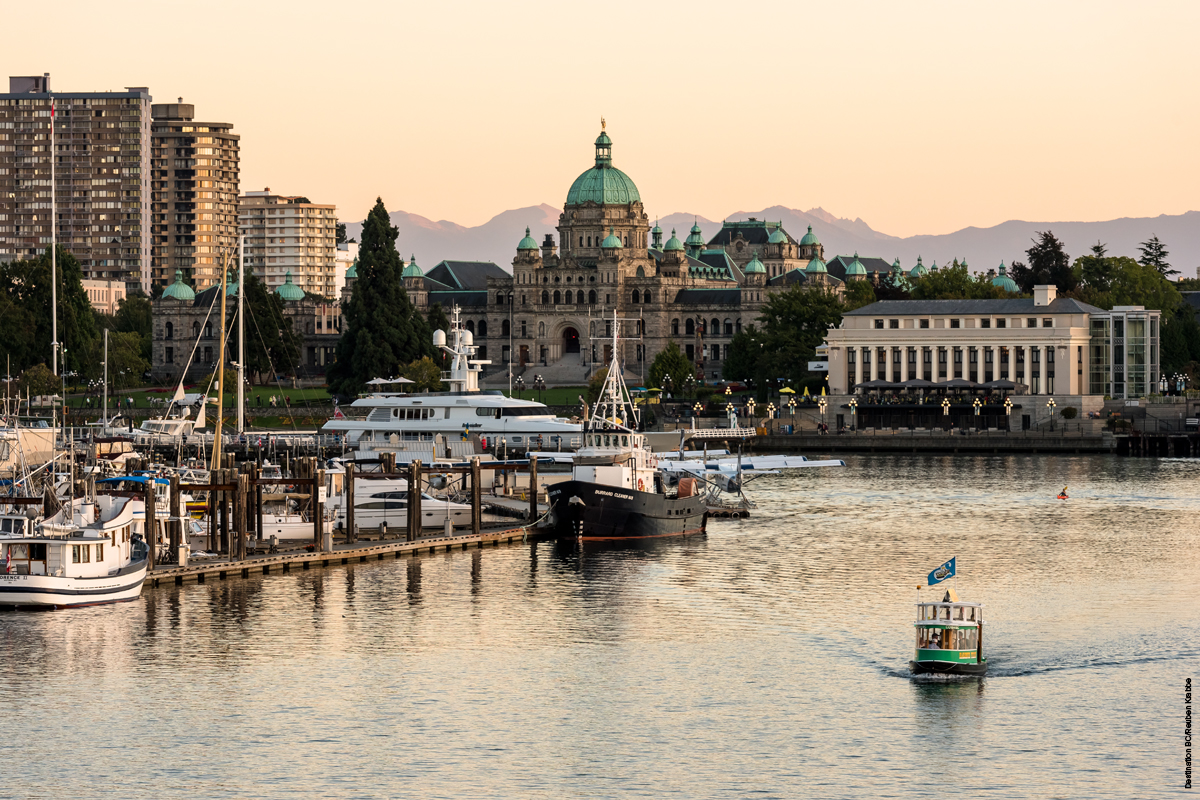Meet the Victoria CEO Leading One of the World’s Largest Ocean Observatories

Skift Take
This sponsored content was created in collaboration with a Skift partner.
At any given moment, Kate Moran has the power to know what every organism off the coast of Western Canada is doing. From microbes to whales, she has insight into the specifics of their environment and factors such as the likelihood of earthquakes and the level of ocean acidification.
As the president and CEO of Ocean Networks Canada, one of the world’s largest ocean observatories, based in Victoria, she oversees an exciting effort to maintain and monitor a vast array of ocean infrastructure that provides reams of data on the marine environment.
“Some of our ocean infrastructure is connected to telecommunication cables that are 800 kilometers long, and we have thousands of sensors that deliver data 24/7 to measure everything,” she said. “We are busy every day making sure all of those systems are running and delivering data over the internet openly so that anyone in the world can use it.”
Studying the Ocean in Victoria, British Columbia
Surrounded by water and sitting on a tectonic plate, the capital city of the Canadian province of British Columbia is not only a charming coastal city but also an ideal location for the organization’s operations. The city is in fact very close to the “spreading center” of a tectonic plate, where 320-degree-Celsius water spurts from “hot vents” on the seafloor and forms giant “black smokers” when it hits the cold seawater. Ocean Networks Canada monitors all of this activity with underwater cameras to better understand the behavior of the seafloor and develop early-warning systems for earthquakes.
“It’s incredible to observe — it's a dynamic system that doesn't stay still,” said Moran. “We’re trying to understand the impacts of such a spreading center and tectonic plates because they generate subduction earthquakes, which are the largest in the world.”
Ocean Networks Canada is hardly alone in its focus on the marine environment around Victoria. There are many other organizations, researchers, and companies in fields as diverse as tourism, aquaculture, and IT working in the region to better understand the ocean environment and create innovations that help build a more sustainable future and combat climate change.
For example, Ocean Networks Canada collaborates with Vancouver Island University to help the local offshore shellfish aquaculture industry maintain clean and healthy farms by providing data from an observatory that’s been set up near a key aquaculture location.
Another project called Solid Carbon, which has a range of partners across Canada, the U.S., and Europe, is permanently sequestering carbon in the seafloor. The project pulls carbon dioxide out of the atmosphere and pumps it into an undersea volcanic rock called basalt, where it reacts to form a rock similar to limestone. According to Moran, this is the most durable way of permanently removing carbon dioxide from the atmosphere.
Rich Collaboration for Maritime Research
All of this collaboration creates an exciting and dynamic atmosphere for ocean-focused professionals in Victoria, as well as for the larger community. This innovation ecosystem, combined with the city's renowned beauty, makes Victoria an attractive proposition for international industry conferences and events. In recent years, they have included the Maritime Security Challenges conference and the Oceanography Society's Oceans Optics conference. Next year, Victoria will host the Coastal Zone Canada 2023 Conference, which seeks to emphasize the importance of coastal zone environments as we address issues associated with climate change and growing resource pressure. Additionally, every year, a volunteer-driven event called Oceans Week Victoria helps the island’s community and visitors celebrate oceans.
Conference visitors and tourists can enjoy Victoria’s walkable downtown, stately architecture, and stunning natural beauty, and also take advantage of unique ocean-related opportunities. Visiting ocean enthusiasts can look forward to a whale watching excursion enhanced by soundtracks of whale sounds and data about their communication provided by Ocean Networks Canada. Moran and her team also often take visitors to Race Rocks — where incredible waves form at the junction of Juan de Fuca Strait and the Pacific Ocean — and then demonstrate how observations from the organization’s ocean-monitoring tools provide real-time data on the surface currents.
“That rich environment of seeing the ocean from everywhere really gives you a good understanding that we are really an ocean planet,” said Moran. “You are visiting a land-based location, but you're really visiting an ocean-rich city.”
These experiences help people better understand the nature of the ocean, as does the data that Ocean Networks Canada collects every day and makes freely available to everyone online.
“We are very proud to be that large ocean observatory that helps not only scientists, but people everywhere understand that there is a world beyond our cities and forests,” said Moran. “We're proud of what we do — we really do connect the people to the ocean.”
Are you an event decision-maker in the natural resources sector? Click here to learn how you can tap into Canada’s world-class ocean science, forestry, mining, cleantech, and energy hubs and elevate your next event or conference.
For more information about Destination Canada’s work within priority economic sectors and how they can benefit business events, visit Destination Canada Business Events.
This content was created collaboratively by Destination Canada Business Events and Skift’s branded content studio, SkiftX.




